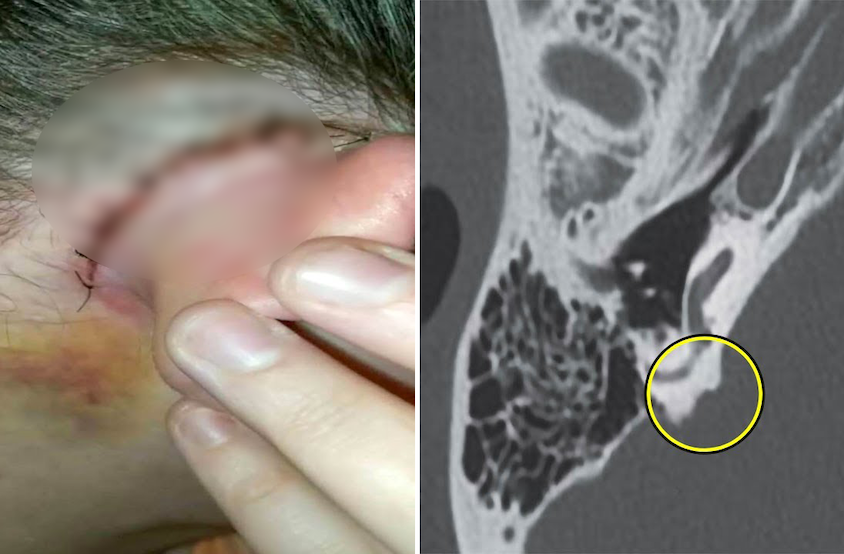During an interview, the unfortunate 32-year-old Gemma said that she has an extremely rare medical condition that forces her to hear her own blood course through her veins every waking second. She didn’t realize this was abnormal until she told her mother about it as a teenager. Gemma desperately tried to find answers for the next 14 years. “I’ve never heard complete silence,” she said. “I’ve always had noises. I’ve always heard my eyes moving and my heartbeat in my head.” After years of being prescribed medications for nasal issues and blocked ears, she gave up. After seeing a specialist, she was diagnosed with bilateral superior semicircular canal dehiscence.
The doctors reportedly told the woman that she is missing part of the temporal bone in both ear canals, which affects both her hearing and balance. She underwent surgery on one ear and is awaiting surgery on the other. If successful, it’ll be the first time in her life that she’ll experience complete silence. The lifelong condition plaguing her every movement has been difficult to describe to the people in her life, as it’s extremely rare and could sound utterly fabricated to some. “I’ve always heard my blood rushing, like a swooshing sound,” said Gemma, but it’s the constant eye movements that have caused her the most trouble.
“When you do say to someone, ‘I can hear my eyeballs moving,’ people ask me what it sounds like and I try to think of so many things that I can describe it with but just can’t tell you a sound that sounds even remotely similar to it.” “It’s not squeaky, but it’s similar. It’s deep in the back of my head. You get tinnitus with it as well, so there are always noises going on.” Gemma has done a remarkable job not letting this overwhelming condition dictate how she lives her life. As a working mother, she gets through the day like everyone else — even if dizziness and constant noise permeate it.
Her first surgery corrected the problem her right ear. Braving the risk of losing her hearing in her left ear, she’s ready to double down and get the second operation several months later. “You can’t operate on both at the same time,” she said, “because it knocks you completely off balance for a while.” “It’s a rare condition, but I think it’s more undiagnosed that anything else,” she said. “I think people have it but they don’t know they can get help.”


